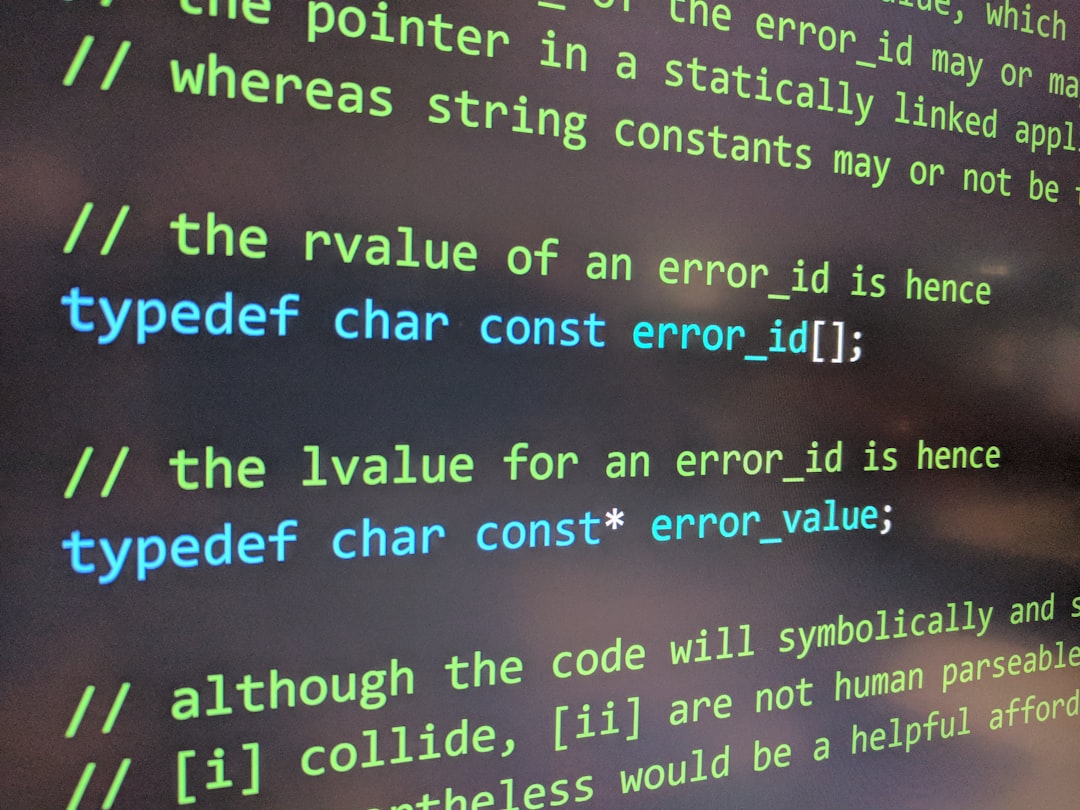Many WooCommerce store owners rely heavily on coupons to drive promotions, increase customer loyalty, and boost sales. When coupons are configured correctly, they are a powerful tool. But what happens when coupons start applying to the wrong products—even when the restrictions appear to be properly set? That’s exactly the challenge one developer faced, and the surprising culprit was a mismatch in product meta fields.
TLDR:
WooCommerce coupons applying incorrectly may stem from a mismatch in how product custom fields (meta fields) are stored and retrieved. During a recent case, even though coupon rules seemed correct in the admin panel, they applied to unintended products. A deeper look into how WooCommerce stores and processes meta fields uncovered the root issue. The fix involved syncing meta key formats and clearing data conflicts through custom debugging.
The Unexpected Coupon Behavior
A WooCommerce store had launched a seasonal promotion in which certain coupons were supposed to apply only to specific product categories. However, the store noticed that these coupons were being applied to unrelated items. For instance, a coupon for “Winter Jackets” was giving discounts on “Summer T-shirts” with no connection to the intended category.
This unexpected behavior left the marketing and development teams confused. The conditions in the WooCommerce coupon settings seemed airtight:
- ⮞ Category restrictions were set correctly.
- ⮞ Excluded products were specifically listed.
- ⮞ Individual use was enabled to avoid stacking logic issues.
Despite all these measures, the wrong products received the discount at checkout. That’s when a detailed debugging process was started to trace the source of the malfunction.

Initial Debugging: Verifying Coupon Rules
The first step was to verify if the coupon rules were being interpreted correctly. By enabling WooCommerce debug logging and tracing the woocommerce_coupon_is_valid filter and related functions, the team confirmed that the coupon’s logic was firing as intended. The culprit had to lie deeper—perhaps at the product data level.
Next came the inspection using standard WooCommerce functions:
$product = wc_get_product( $product_id );
$product_categories = wc_get_product_category_list( $product_id );
if ( in_array( 'winter-jackets', $product_categories ) ) {
// Expected coupon logic
}
No obvious errors came up during this evaluation either. Yet, coupons continued to apply to unintended products.
The Discovery: Meta Field Mismatch
The breakthrough came when comparing raw database entries of product meta fields against WooCommerce’s API return values. What emerged was surprising: the category data used for coupon validation was being pulled from a custom meta field by a third-party plugin, not WooCommerce’s native product taxonomy.
This meant that even though the coupon was configured to use WooCommerce’s product_cat taxonomy, certain products had similar category information stored in an alternate meta key format that the core coupon logic never queried. As a result, when certain conditions were checked against meta fields (via custom code or third-party logic), they collided or bypassed intended checks.

Understanding How WooCommerce Uses Meta Fields
WooCommerce heavily relies on post meta data stored in the wp_postmeta table for each product. However, conflicts can arise when a theme or plugin saves overlapping data using similar but non-standard meta keys (like _product_category instead of the taxonomy product_cat).
For example, if a plugin saves metadata like this:
add_post_meta( $product_id, '_product_category', 'summer-wear' );
But the coupon validation system is using:
has_term( 'winter-jackets', 'product_cat', $product_id );
Then, even though the product appears in a certain category visually (due to theme display logic), the actual coupon logic won’t recognize that correctly. If manual condition checking or a custom coupon logic filter references the custom field rather than the taxonomy, it might misinterpret or misapply the coupon entirely.
The Fix: Realigning Meta Field Logic
The solution was to trace all code paths affecting coupon validation—both those in WooCommerce core and any overridden logic in the active theme or plugins. The developer introduced a custom validation filter:
add_filter( 'woocommerce_coupon_is_valid_for_product', 'check_coupon_meta_conflict', 10, 4 );
function check_coupon_meta_conflict( $valid, $product, $coupon, $values ) {
$custom_category = get_post_meta( $product->get_id(), '_product_category', true );
if ( $custom_category === 'summer-wear' && $coupon->get_code() === 'WINTER20' ) {
return false; // prevent mismatched coupon application
}
return $valid;
}
This ensured that even if a product carried conflicting custom meta data, the coupon logic stayed loyal to WooCommerce’s standard taxonomy-based categorization.
Clearing Old Data and Refreshing Indexes
Once the logic was corrected and realigned, the old meta entries were cleaned, and the product data cache was cleared using the following commands:
wp cache flush
wp transient delete --all
Additionally, a full reindex of product lookup tables was performed via:
wp wc tool run regenerate_product_lookup_tables
After these steps, coupons began behaving as expected, applying only to the correct group of products and respecting all exclusions.
Lessons Learned
This experience served as a key reminder of the following:
- Custom meta fields can disrupt native logic – especially when multiple sources manage product data.
- Always trace both the visual and logic data paths – what the customer sees may not match what the system uses for logic checks.
- Coupon misfires are usually data integrity issues, not core bugs.
By focusing on data debugging at the meta key level, store owners and developers can prevent misconfigured discounts that hurt revenue or customer trust.
Conclusion
When WooCommerce coupons behave incorrectly, the issue often lies outside the visible settings. By tracing custom field logic and ensuring consistency in product data handling, developers can restore normal behavior. In this case, fixing a meta field mismatch saved hours of confusion and ensured the integrity of an important seasonal promotion.
Frequently Asked Questions (FAQ)
1. Why was my WooCommerce coupon applied to the wrong product?
This usually happens due to misconfiguration or, as described in this article, a mismatch in product meta fields, especially when third-party plugins store redundant or conflicting data.
2. What is the difference between WooCommerce meta fields and taxonomies?
Taxonomies like product_cat are used for categorization and are native to how products are grouped in WooCommerce. Meta fields are custom data entries in the database and can be used differently by themes or plugins.
3. Can I safely delete custom meta fields?
Only delete custom meta fields if you are certain that no theme or plugin relies on them. Always back up your database before making structural changes.
4. How can I debug coupon behavior in WooCommerce?
Use debug logs, enable WooCommerce’s coupon filters, and trace logic using functions like woocommerce_coupon_is_valid_for_product. It’s also helpful to examine your database’s wp_postmeta entries.
5. Do I need coding experience to fix this kind of issue?
Debugging meta field mismatches requires a working knowledge of PHP and WordPress data structures. It’s recommended to involve a developer for such issues.


